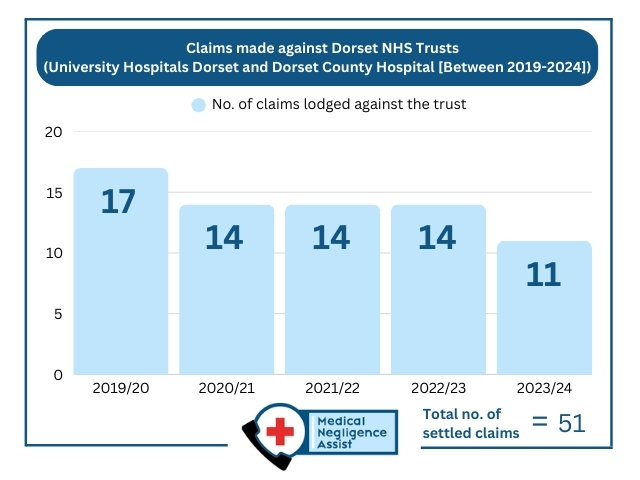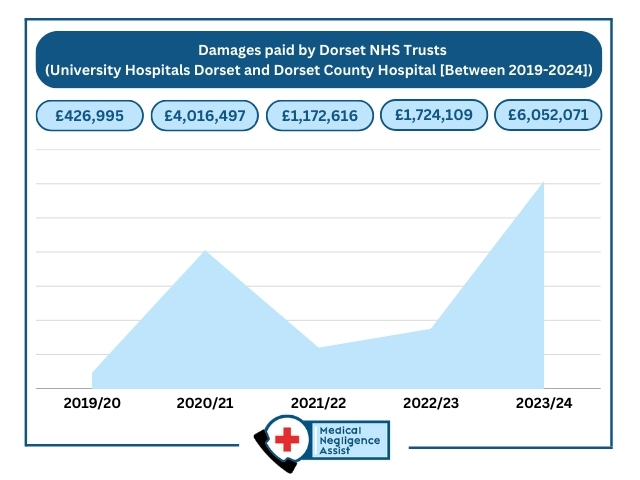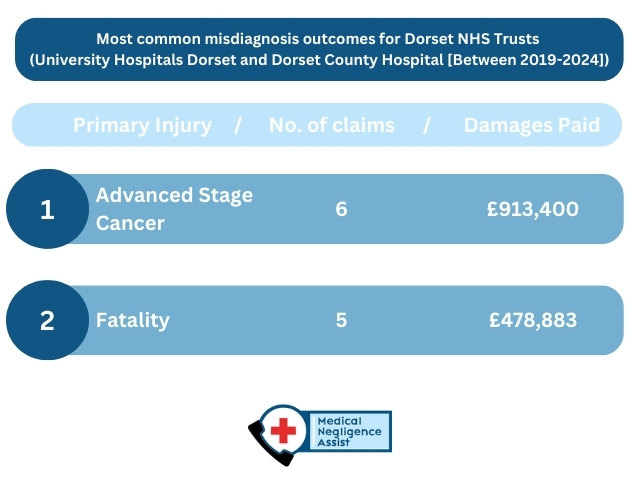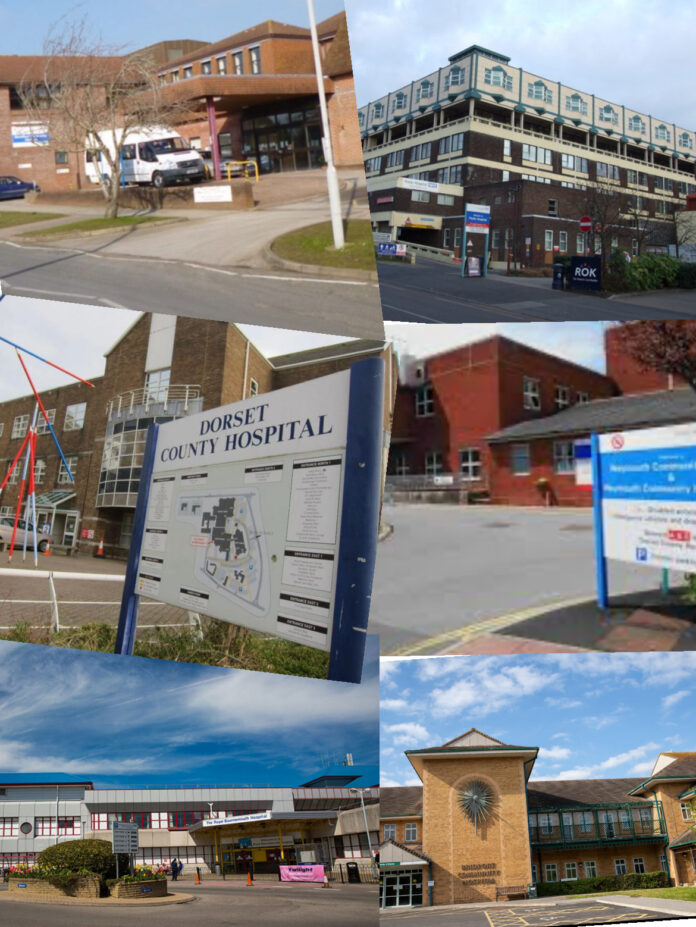When a patient is incorrectly diagnosed, they can be left in unnecessary pain, and NHS trusts across the country have had to pay out millions in compensation over the past few years.
Figures obtained by Medical Negligence Assist found that, since 2019, NHS Trusts in Dorset have had to pay out nearly £8m to patients who have lodged claims following a misdiagnosis.
Gareth Lloyd, medical negligence solicitor for JF Law (which owns the Medical Negligence Assist brand), said, “Misdiagnosis is an all-embracing clinical negligence case type and covers a wide range of clinical situations, from the simple diagnosis of a fracture to potentially fatal cancer diagnoses.
“These cases can be a matter of life and death, and whether someone lives or dies will be determined by the success of the diagnosis.”
With an overstretched NHS, increasing patient numbers, and mounting pressures on staff, misdiagnoses are becoming alarmingly common.
When healthcare professionals fail to diagnose an illness or injury correctly, patients can endure painful and potentially fatal consequences due to not receiving the right medical care and treatment.
A person affected by misdiagnosis can, in some cases, make a medical negligence claim against the NHS.
Compensation is covered by insurance policies, meaning frontline care is unaffected by negligence claims.
University Hospitals Dorset and Dorset County Hospital NHS Foundation Trusts are the largest healthcare providers in Dorset, delivering physical and mental health services to nearly 800,000 people.
Between 2019 and 2024, 70 claims regarding misdiagnoses were lodged against Dorset NHS Trusts, with 51 of these claims being settled.
The highest number of claims was made in 2019/20, when 17 claims were filed against the trusts.
A year later, this number decreased to 14 claims.
The trusts have seen a decrease in the number of claims over the past year, compared to 2022/23, with a total of 11.

According to NHS Resolution, diagnostic errors contribute approximately 20% of all clinical negligence claims.
The reasons for misdiagnosis naturally vary from case to case, but NHS Resolution highlights two consistent failings across England, one of which is diagnostic errors, particularly early incorrect diagnoses of soft-tissue injuries.
The second is issues with requests for imaging, reporting, interpretation, and follow-up, including failure to complete further imaging, such as CT or MRI, as indicated in national guidance.
In 2023, the British Medical Journal (BMJ) conducted a study that found approximately 1 in 18 patients in primary and secondary care are affected by misdiagnosis.
The BMJ also found that misdiagnosed cancers, strokes, and heart attacks were among the most serious cases, often leading to life-altering consequences or death.
Medical Negligence Assist obtained figures on how much Dorset NHS Trusts have paid out to misdiagnosis claims since 2019.
Over the past five years, the trusts have paid out a total of £13,392,288, with the highest amount being paid in 2023/24, at £6,052,071.

According to The Guardian, Surrey assistant coroner Karen Henderson wrote to 12 health leaders, including UK health secretary Wes Streeting, to express concerns over the limited training that physician associates (PAs) have.
This was after a woman was diagnosed as having a nosebleed despite having severe abdominal problems, which the PA had a ‘lack of understanding’ about, and she was sent home the same day.
Pamela Marking, 77, returned to the hospital two days later after seeing her health deteriorate before undergoing surgery for complications arising from a femoral hernia but died on 20 February 2024.
Henderson said the PA had acted independently in the diagnosis, treatment, management and discharge of Marking without independent oversight by a medical practitioner.
Based on figures gathered by NHS Resolution, 8,067 claims have been lodged against NHS trusts around the country for misdiagnosis in the past five years, with 5,677 of these claims being settled.
The government department also revealed the most common injuries and outcomes that resulted from misdiagnosis claims against Dorset NHS Trusts.
The most common outcome for misdiagnosis claims was advanced-stage cancer, which was lodged 6 times, with the trusts paying £913,400 in compensation, followed by fatalities, which saw 5 claims submitted.

Speaking to Medical Negligence Assist, Gareth Lloyd said, “Misdiagnosis can have a huge impact on people’s lives. A common case of misdiagnosis is a scaphoid fracture, where typically someone uses their hands to break a fall.
“I’ve had a specific case in the past whereby a man in his early twenties suffered a fractured scaphoid that was initially diagnosed as a sprained wrist.
“As it went undiagnosed for a number of months, the client ended up having a fixation of his wrist, resulting in him not being able to use the hand and, as a consequence, has not been able to continue with his job.”
Medical Negligence Assist offers support to patients who may have suffered harm as a result of a misdiagnosis and can see if they have grounds to submit a claim.
They operate a 24-hour helpline and claim online form, which you can access on their website.







